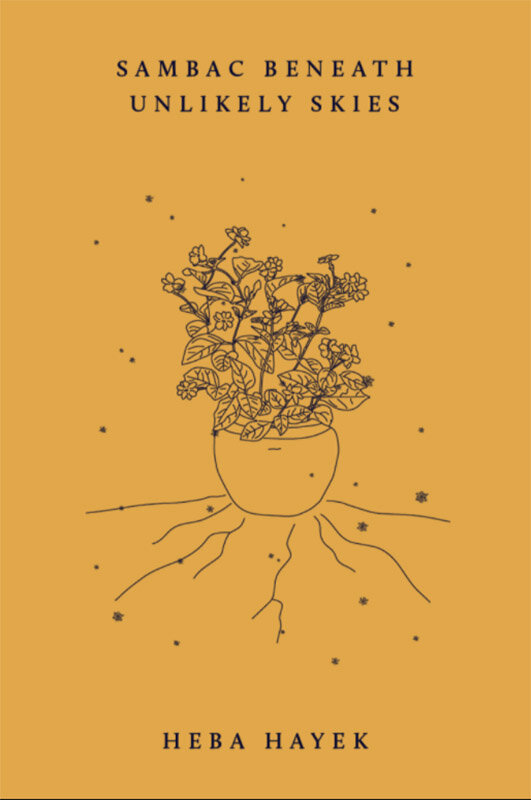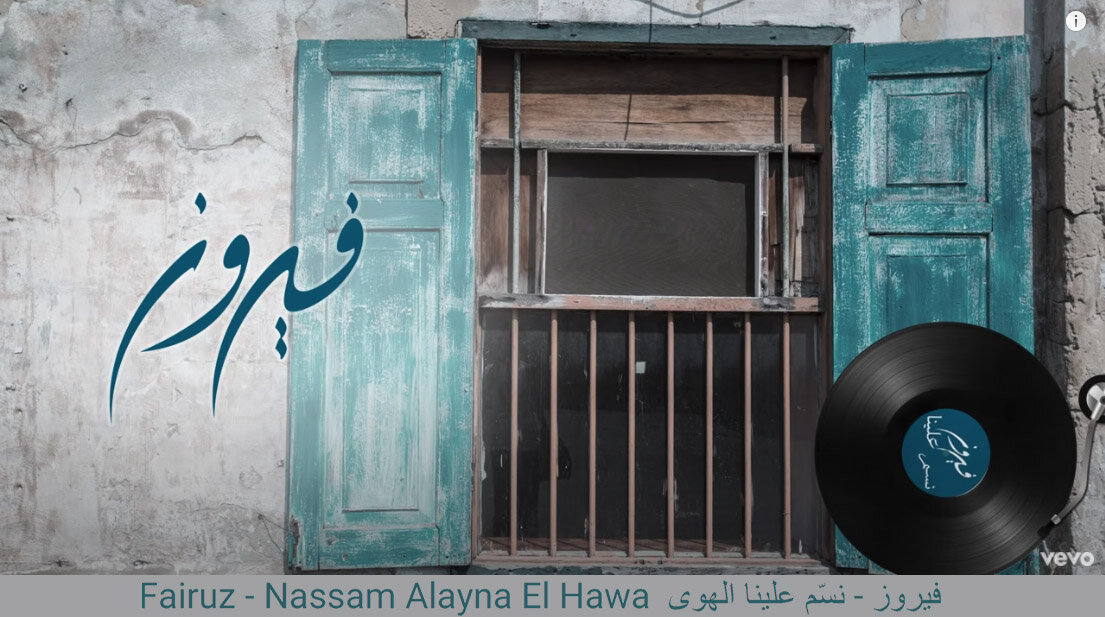The following chapter is excerpted from Sambac Beneath Unlikely Skies, published by Hajar Press 2021.
Heba Hayek
Guns and Figs
Song: Fairuz – ‘Nassam Alayna El Hawa’

Growing up, I would sit in the back seat of Baba’s blue 1993 Subaru Loyale, the windows wide open on his countless drives along the sea. I remember most vividly those summer Fridays when we headed south for barbecues at the water park. I was in primary school. My brother and I each had assigned places in the car, until our little sister grew old enough to claim her window-seat rights. Then the rotation became tricky, involving fights that mostly ended with my brother crying in the middle. I usually sat by the window, facing the sun and the sea, breathing the salty, creamy air and occasionally eating grapes and figs: the ultimate Mediterranean summer snack. The rhythm of my parents’ loud chatter, the rocking of the car and the distant, soft hum of music on the radio always put me to sleep before we arrived at the water park. The view was unchanging for the duration of the twenty-minute drive: the sea stretching to the horizon, the midday sun beating down, families gathered around parked cars, trunks open and full of food and drinks. Winters then were unmemorable, except when it rained so much that school was cancelled. But in summer, time was like honey oozing from a bottle. It stretched, but quickly gathered and spread through our memories. Sticky and delicious. All these drives felt the same, except the last one. We were stopped at Abu Holi checkpoint, where a soldier waved to my dad and told him to pull over. He was wearing a khaki uniform and headgear that covered his whole face, which seemed a bit much for our weather. I knew Baba was political and that he had gone to prison for protests he’d coordinated and things he’d said or written. I also knew of the many times he’d been taken from the house in the middle of the night, and part of me always feared that it would happen again. Baba reverse parked as instructed, looking at my brother and me with a reassuring nod. “I’ll be back in a minute,” he said. I had been chatting to Mama for thirty minutes when Baba came back, telling us that it would just be a little while longer and asking me to stop chewing on the leather at the back of the passenger seat, before disappearing once again. My brother took off his shirt and covered his head to protect himself from the sun, and Mama peeled figs for us, teaching us how to eat them properly.
Read a review of Sambac Beneath Unlikely Skies
“I just found out that Reem and I wear the same panties, Mama,” I said, eager about my Barbie prints. “Does this mean you both showed each other your panties?” she asked, not very eagerly. “No… we just described them to each other.” I realized the mistake I had just made and stuffed more figs into my mouth. “There’s a bird, you know, that tells me the truth, so you’d better say it because I will find out anyway.” I knew there was no bird, so I denied it all, but Mama wasn’t exactly in the mood for parenting in any case. By the time Baba returned nearly an hour later, I had fallen asleep in his seat, and Mama was on her phone cancelling our barbecue plans. “What happened?” she asked. As Mama probed, Baba responded with the same sentence: “Just regular questions, nothing important.” “For an entire hour?” I lingered on their words, a little drowsy but still able to see and hear them. Baba looked at her. “Tamam, mish moshkela,” said Mama, dropping the subject. “Do you know your daughter showed her panties to her classmate?” We didn’t end up going to the water park, and the journey home was spent discussing rules about panties. Our Friday barbecue trips stopped indefinitely, but I was never told why. I started to notice Baba paying more attention to the road; it seemed like he was avoiding certain checkpoints. Every so often, he would point out something ahead and wonder aloud whether it was a checkpoint or a fruit cart. As Fairuz sang from the cassette player, Baba drove on, trying to guess the difference between guns and figs.







